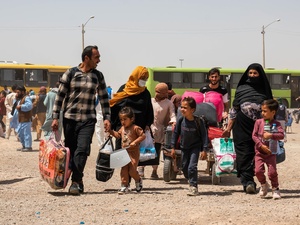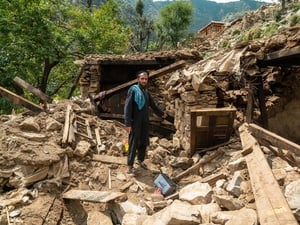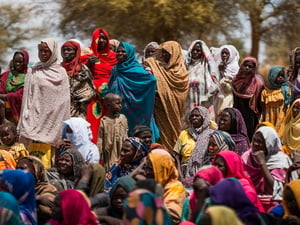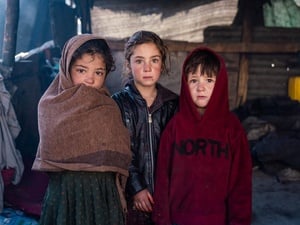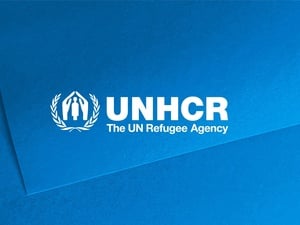Afghanistan Humanitarian Update No. 40
Afghanistan Humanitarian Update No. 40
At a Glance:
- Aid distribution in western Afghan city of Herat
- Returns from Iran to Afghanistan continue at around 1,000 per day
- More refugees transferred to new camps in Pakistan
Aid distribution in western Afghan city of Herat
UNHCR and Iranian Red Crescent Society staff distributed plastic sheets and blankets to 9,000 people in three camps outside Herat, in north-western Afghanistan over the weekend. The supplies were driven into Herat from the Iranian town of Mashad earlier in the week. The camp populations continue to swell with several hundred newly displaced people arriving daily from the central province of Ghor, which is one of the hardest hit by Afghanistan's drought, and has also been affected by sporadic conflict throughout the year. UNHCR staff said the Herat camps' inhabitants urgently needed winter supplies such as stoves, blankets, winterized tents and warm clothing. UNHCR is planning another relief convoy from Mashad to Herat in the near future. The UNHCR office in Herat is now up and running with 20 local staff back at work.
Returns from Iran continue at around 1,000 a day
After the usual weekend lull at the Iranian border crossing on Friday, the movement back into Afghanistan picked up again at the weekend with 315 people returning on Saturday, and 997 on Sunday. UNHCR staff monitoring the border reported there were ann increasing number of people who said they were going back to Afghanistan to stay. Some said they wanted to start businesses. One man, who carried a barber's chair across the border on Sunday, was apparently hoping for a booming business shaving beards after the Taliban's hasty departure from Heart last week. Over the past week or so, an average of 1,000 people have been crossing from Iran back into Afghanistan daily. In all, nearly 45,000 Afghans have crossed the border from Iran since September 11. Those returning to this part of Afghanistan are predominantly members of minority groups - Hazaras, Uzbeks and Tajiks.
More refugees transferred to camps in Pakistan
Transfer of vulnerable Afghan refugees in Pakistan's south-western Baluchistan Province continued on Sunday. Two convoys of trucks and busses ferried 770 people to the new Roghani camp from the Killi Faizo staging site close to the Chaman border crossing with Afghanistan, bringing the Roghani camp population up to a total of 7,782. After four babies died in the camp earlier in the week, a UNHCR medical worker visited Roghani on Saturday. No further deaths from diarrhoea were reported.
Also on Sunday, UNHCR pre-registered 490 new refugees who were admitted to the Killi Faizo site. After these people, comprising 102 families, had entered, the Pakistani authorities stopped the registration for the day, leaving around 350 families outside the site. Also, for the second day running, the authorities on Saturday refused to allow the pre-registration of men aged between 20 and 40. As a result, a large group of men were also left in the open outside the staging camp, separate from the rest of their families. Only one man whose wife was too weak to feed their 12-day old baby was allowed into Killi Faizo. Four malnourished babies were rushed straight from the border to the local hospital. An estimated 3,000 people are now inside the Kili Faizo staging site, taking the total for the two new sites in Baluchistan to just under 11,000.
Up to 60,000 Afghans are believed to be camping just across the border near the Afghan frontier town of Spin Boldak. Their living conditions are said to be very poor, and efforts of aid agencies to operate in this area are seriously impeded by security concerns. Only 400-500 people a day are currently being allowed to cross into Pakistan at this border crossing.
In Pakistan's North-West Frontier Province, the transfer of refugees continues from the squalid Jalozai camp near Peshawar to the newly established camp at Kotkai, 120 kms to the north-west. On Sunday, 527 people were bussed from Jalozai to Kotkai, making a total of 2,800 transferred between the two camps since the movement began last Monday.


